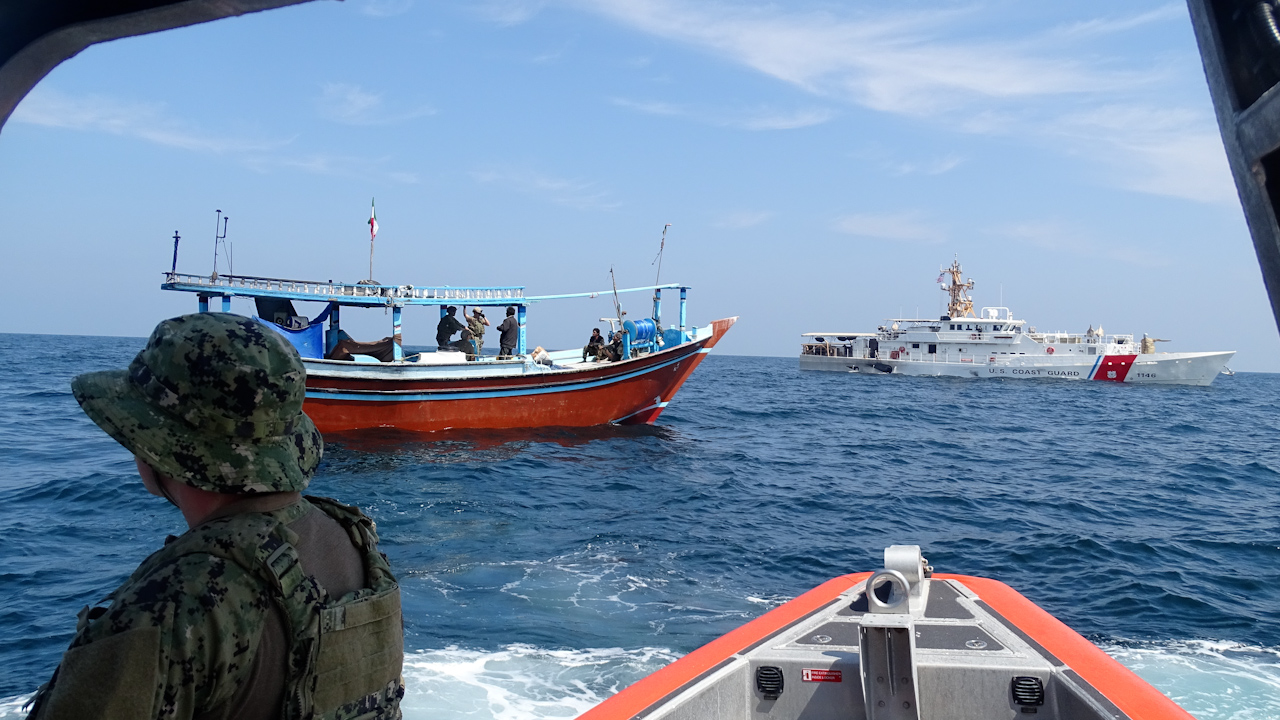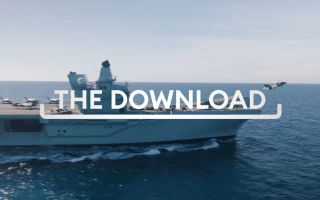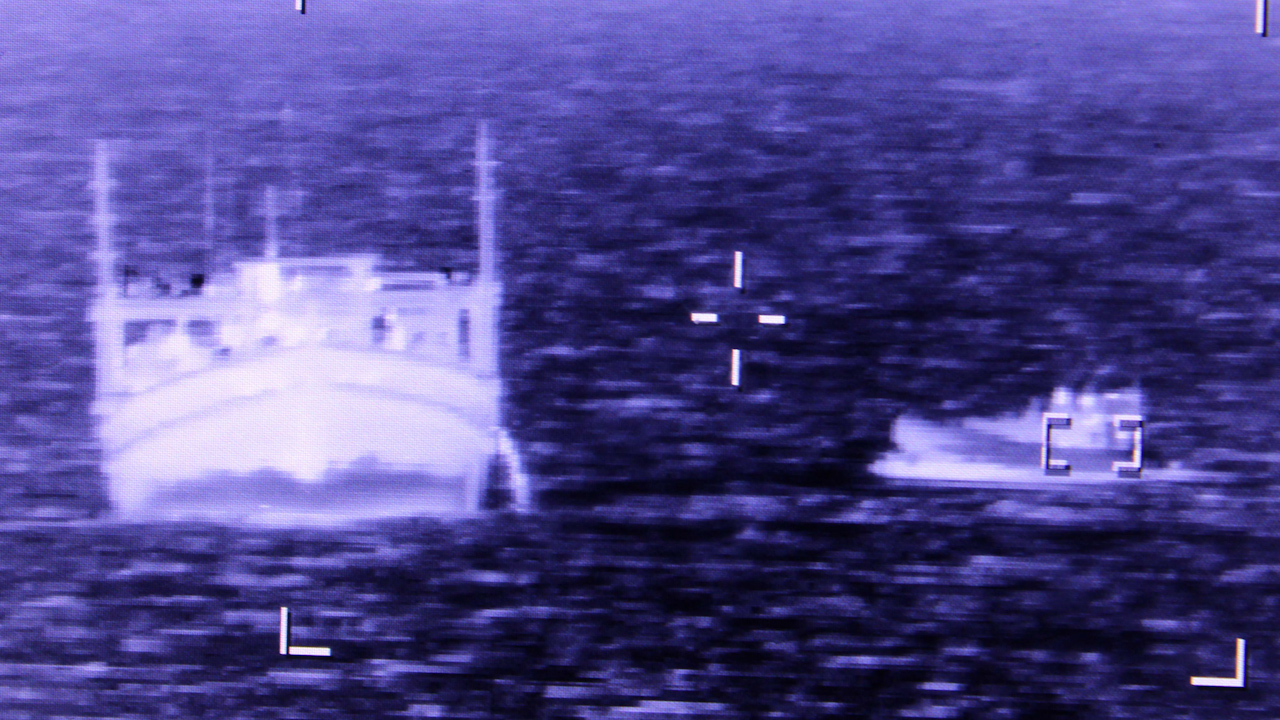
Royal Navy-led task force celebrates record-breaking £161m drug seizures

A Royal Navy-led task force has delivered a record-breaking haul of drugs during a six-month deployment in the Indian Ocean.
Warships of the international Combined Task Force 150, made up of American, French and British vessels, have seized 22 tonnes of illegal narcotics after completing 14 successful 'busts'.
Their success is believed to have deprived criminal or terrorist gangs of drugs with a street value of at least £161m.
Led by Captain James Byron, they have formally handed over responsibility for the mission to the French Navy, six months and a day after taking the helm.
Capt Byrom said: "Putting good people next to bad people to stop them doing bad things has been our calling card.
"This has been, without doubt, the most fulfilling of my recent deployments to Bahrain, working alongside superbly talented and motivated individuals, my very own 'little pack of gundogs' have been determined to sniff out illegal narcotics and stop this vile trade.
"My favourite moment of the deployment has got to have been working with Norton, the narcotics sniffer dog – and as I go home to my family and my own spaniels, I do so knowing we have done a great job, with heads held high."
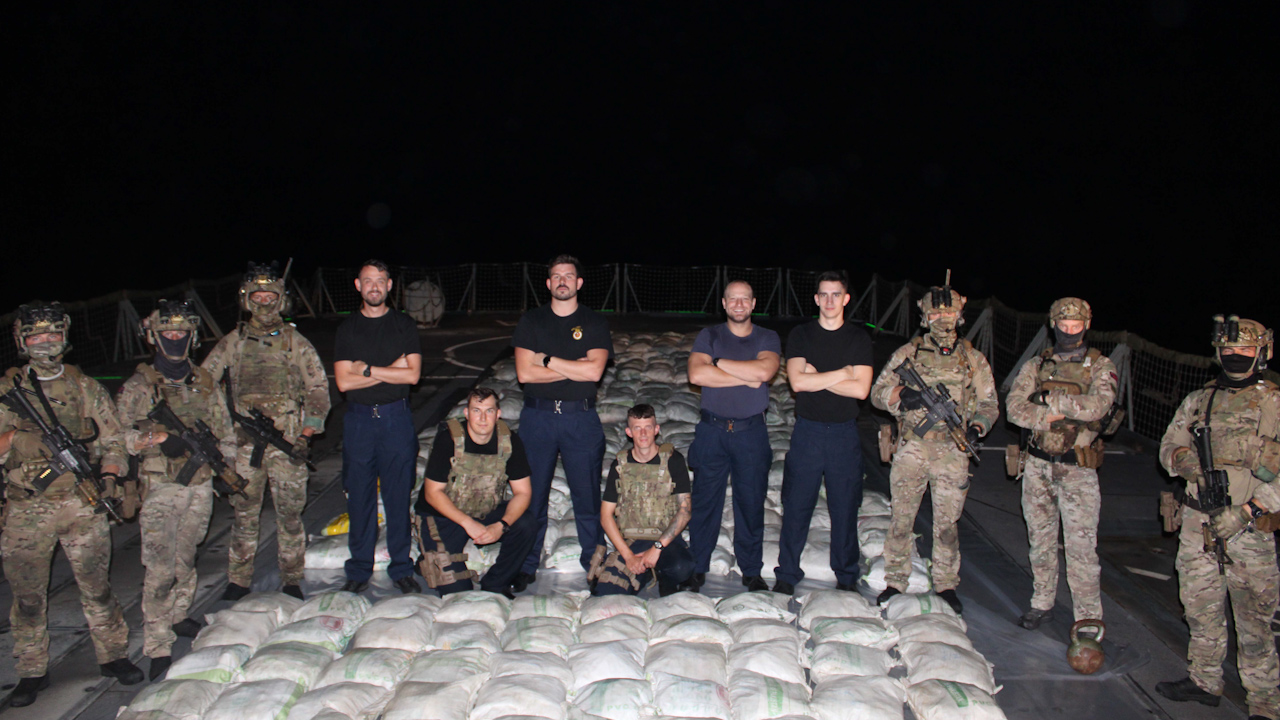
The substances seized, including marijuana, heroin, methamphetamine and fenethylline tablets, have been dumped in the Indian Ocean following the interceptions by Lancaster and other ships from the US and French navies and the US Coast Guard.
The ships are part of a wider international effort that has also involved vessels from Pakistan, India and Italy, policing more than three million square miles of the Indian Ocean from the Gulf of Oman to Madagascar and the Mozambique Channel in the south.
Their actions have been directed from Bahrain by the task force staff, mostly Royal Navy, but supported by colleagues from the Italian and Royal New Zealand navies, and the RAF.
The Royal Navy had observed a dramatic increase in more damaging and addictive drugs being trafficked in the region – around seven tonnes of the total haul was heroin and methamphetamine.
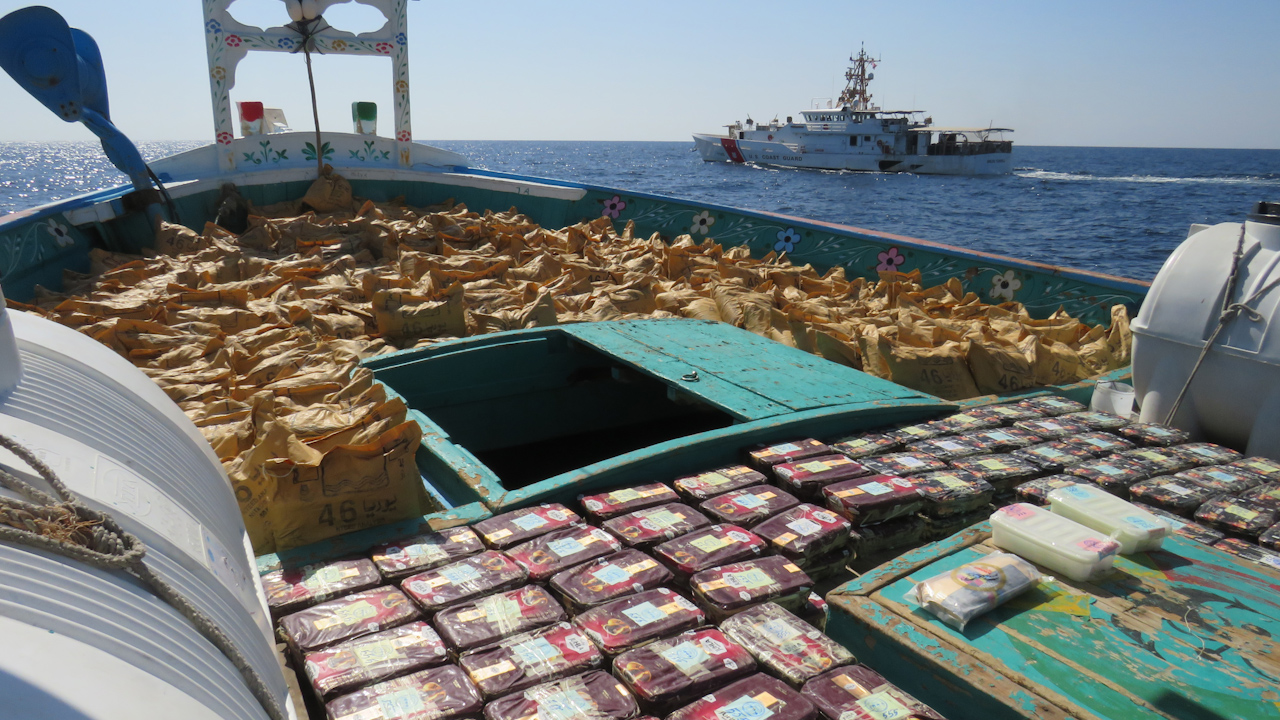
Lieutenant Rachel Cox said: "I have had an incredible six months deployed in Bahrain.
"I have learned so much from the amazing team and working with our international partners has been an opportunity I'll never forget.
"A highlight for me was accompanying Captain Byron to the Seychelles and seeing first-hand the impact that our counter-narcotics operations have on their communities."
